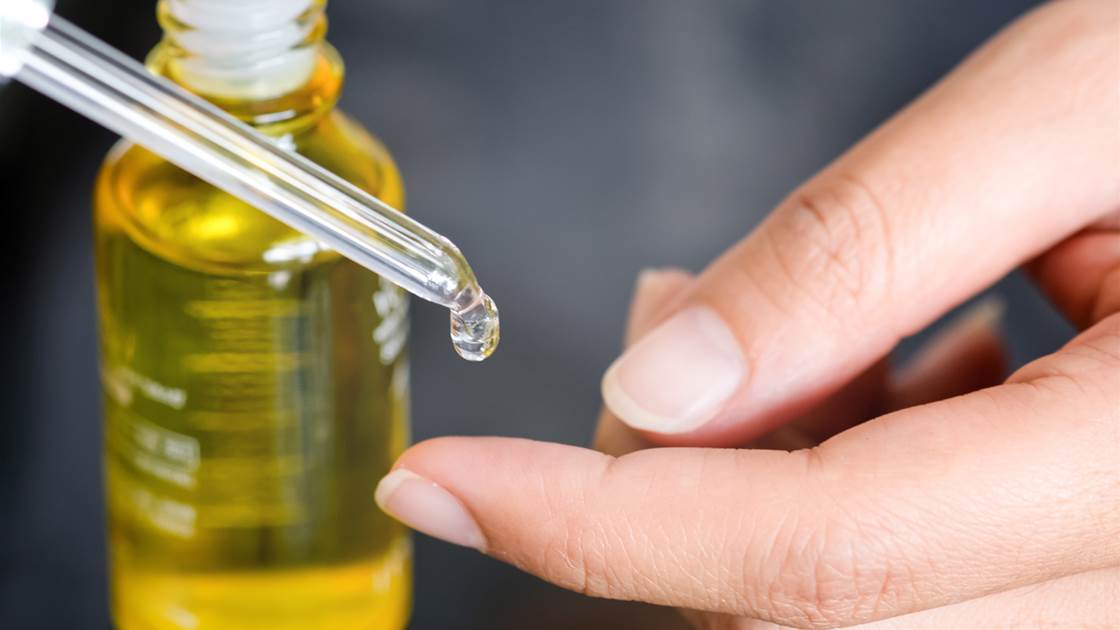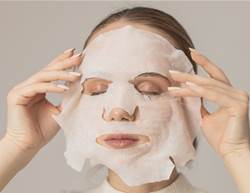There’s no shortage of serums and creams promising a healthy glow, but one ingredient has stood the test of time: vitamin E oil.
Vitamin E is found in many skincare staples, from moisturisers to anti-ageing serums to sunscreens. “Vitamin E is mainly touted for its antioxidant, anti-inflammatory, photoprotective and moisturising properties,” says dermatologist Dr Janiene Luke.
Below, experts explain everything you need to know about using vitamin E oil for the skin, including benefits, when to use it and potential side effects.
What is vitamin E?
"Vitamin E is lipid-soluble, derived from plants and obtained through our diet,” explains Dr Luke. “There are multiple types of vitamin E (also known as tocopherols), with α-tocopherol being the most abundant in human tissues.”
It’s also a powerful antioxidant. In skincare products, it’s often listed on labels as tocopherol acetate, explains dermatologist Dr Karan Lal.
Benefits of vitamin E oil for skin
Moisturising skin
Vitamin E’s hydrating properties make it a go-to for tackling dryness. While more research is needed, vitamin E oil may help improve flaky, rough skin.
Contains anti-ageing properties
“Vitamin E is a potent antioxidant and can help fight free radicals,” explains Dr Lal. Free radicals damage collagen and elastin, the proteins that keep skin firm and youthful.
May help prevent UV damage
Dr Luke notes that vitamin E works even better when combined with vitamin C. “Together, they inhibit UV damage that can lead to photoageing and skin cancer,” she says. More research is underway in this area.
Ease eczema symptoms
Topical vitamin E has shown improvement in eczema symptoms like itching, redness and swelling. Evidence is still limited, but promising.
Wound healing
Research has found that oral supplementation of vitamin E (with vitamin C and zinc) can help wounds heal faster. The data on topical vitamin E for wound healing, however, remains limited.
Scar reduction
“Vitamin E has some really good, low-level data on improving scars,” says Dr Lal. It’s often recommended for surgical scars under medical guidance to reduce their appearance.
Side effects of vitamin E oil for skin
Vitamin E oil is generally safe, but like most skincare ingredients, it’s not without risks
Skin irritation
“Because over-the-counter products are not strictly regulated, there can be differences in quality, type and concentration of vitamin E among brands,” explains Dr Luke. Some people may also notice irritation or sensitivity, especially if the oil is blended with other ingredients that are harsh on the skin.
Allergic reaction
According to Dr Lal, some individuals are allergic to vitamin E itself. This can trigger allergic contact dermatitis, which may appear as redness, itching or a rash after topical application.
Acne
Vitamin E oil isn’t usually comedogenic, meaning it doesn’t typically clog pores. However, Dr Lal points out that “any oil applied to the skin has the potential to block sebaceous glands, which could trigger breakouts in people prone to acne.”
How much vitamin E do you need?
Vitamin E is a systemic antioxidant that supports overall health when obtained through diet or taken as a supplement, says Dr Lal. For most people already taking a multivitamin, there’s usually no need for additional supplementation since most formulas include vitamin E.
Dr Luke notes the recommended daily intake is around 15 mg of α-tocopherol. Still, it’s best to speak with your healthcare provider for guidance tailored to your personal needs.
While evidence is still emerging, some studies suggest oral vitamin E may benefit people with inflammatory skin conditions such as atopic dermatitis and psoriasis.
One important consideration: vitamin E can act as a blood thinner, similar to ibuprofen. Dr Lal cautions that anyone taking it orally should tell their doctor before any procedure, including cosmetic treatments like Botox or filler and follow medical advice on whether to continue.
How to use vitamin E oil for skin
If you’re interested in trying vitamin E for skin health, both Dr Luke and Dr Lal recommend choosing skincare products that already contain vitamin E. These are often carefully formulated to limit irritation from additives.
Some people prefer applying pure vitamin E oil, especially for concerns like scarring or dryness. If you take this route, check the label to ensure it states “pure vitamin E” to avoid unexpected ingredients that could trigger a reaction, says Dr Lal.
Vitamin E oil can be used at any time, but Dr Luke notes it may be particularly effective in the morning. “Because of its antioxidant properties, applying vitamin E early in the day can help protect the skin from environmental stressors,” she explains.
Whenever you introduce a new product, patch testing is key. Apply a small amount under the chin, along the jawline or behind the ear and wait 24 to 48 hours to check for irritation before using it more broadly.
Dietary supplements are designed to support the diet but they are not medicines. They are not intended to diagnose, treat, prevent or cure disease. Avoid taking supplements if you’re pregnant or breastfeeding unless advised by your doctor. The same applies to giving supplements to children — only do so with professional guidance.










